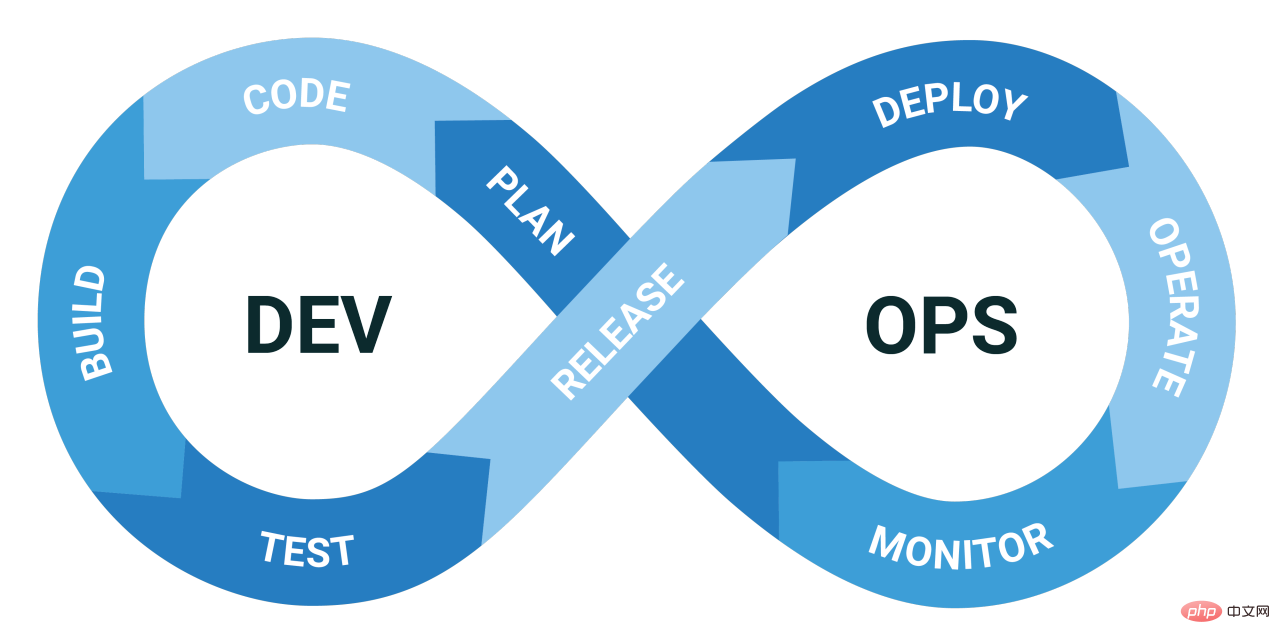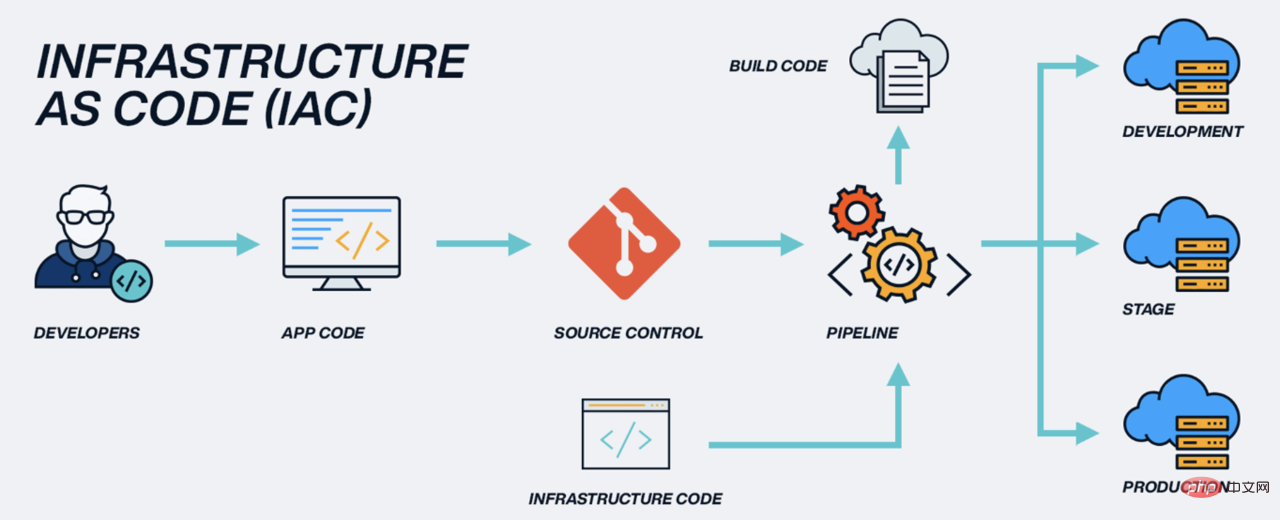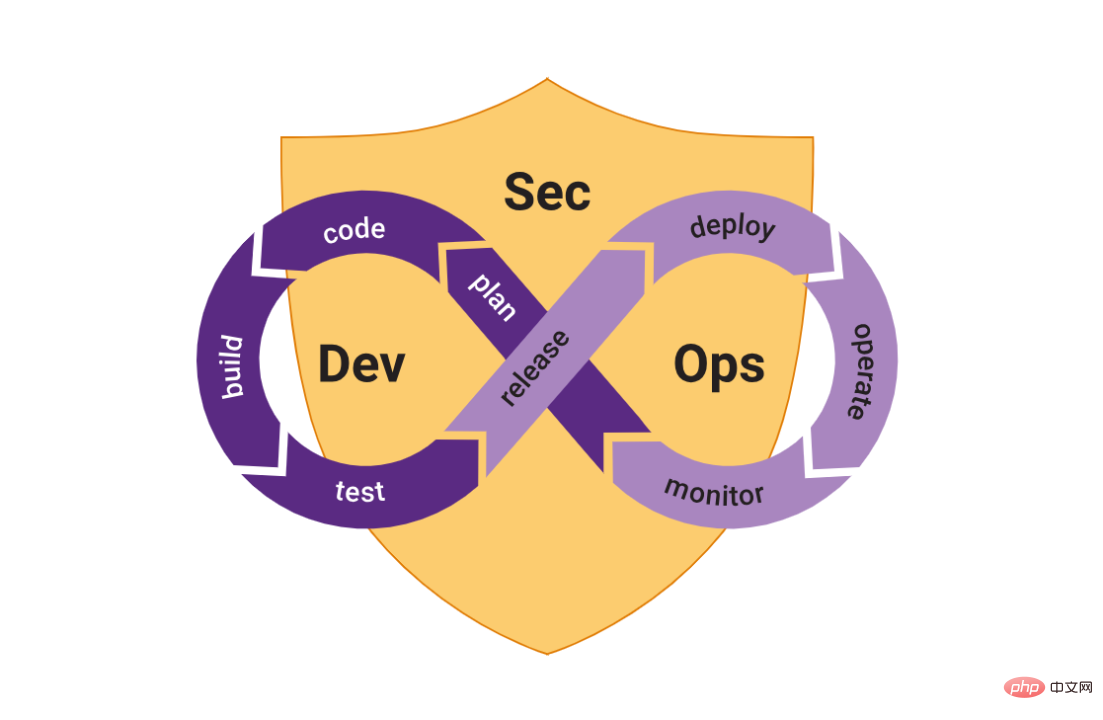 Backend Development
Backend Development
 Python Tutorial
Python Tutorial
 The role of DevOps in enhancing the software development life cycle
The role of DevOps in enhancing the software development life cycle
The role of DevOps in enhancing the software development life cycle
DevOps is a methodology that combines seamless integration of software development and IT operations to streamline work processes. DevOps emphasizes improving communication, promoting teamwork and uniting software delivery teams, enabling faster response and synchronization. Stronger triggers for the development process, helping businesses achieve better overall performance, higher customer satisfaction, faster time to market and cost-efficiency.

#Software development is a complex and dynamic field that requires constant input, iteration, and collaboration. In today's competitive market, the demand for reliable, timely and high-quality solutions has never been higher. Enter DevOps, a revolutionary approach that is fundamental to solving such challenges.
DevOps is more than just a methodology; it combines seamless integration of software development and IT operations to streamline workflows. With its emphasis on improving communication, promoting teamwork, and uniting software delivery teams, DevOps is the trigger for a more responsive and synchronized development process.

DevOps is a key tool in modern software development services, helping enterprises achieve better overall performance, higher customer satisfaction, faster time to market and cost-effectiveness. It is a dynamic force that easily adapts to the changing needs of the industry and enables businesses to successfully and quickly respond to software development challenges.
7 ways DevOps can enhance the software development life cycle
The following are the 7 ways DevOps can enhance the software development life cycle:
1. Accelerate development
DevOps encourages continuous integration and delivery, or CI/CD (in English), which enables developers to release software faster and merge code changes more frequently. This reduces the time required to release updates or new features to production and speeds up development cycles.
The emphasis on automation and collaboration in a CI/CD framework enables teams to respond to market demands, innovate quickly, and maintain a competitive advantage in a dynamic software development environment.
2. Automated Testing
DevOps automation covers the entire software delivery pipeline, not just helping eliminate errors. Automated processes for continuous integration, deployment, and testing enable the timely and rapid release of new features and upgrades. This speeds up the development process and frees teams from manual labor and repetitive tasks to focus on strategic and important work.
Automation increases productivity and builds a solid, future-proof development ecosystem by ensuring reliable software delivery and laying the foundation for scalability, adaptability, and continuous improvement.
3. Enhance collaboration
DevOps creates a culture of collaboration by eliminating silos between development and operations teams. It ensures that all parties involved in the software development process are on the same page, by facilitating communication and sharing responsibilities, resulting in smoother workflows and fewer bottlenecks.
A collaborative environment promotes continuous learning and development, where each team member’s expertise complements that of others, creating a creative and adaptable culture.
4. Infrastructure as Code (IaC)
DevOps places a strong emphasis on handling infrastructure such as code, allowing teams to use code scripts for infrastructure management and configuration. This approach makes resource allocation more efficient, ensures consistency across environments, and simplifies scaling. Additionally, Infrastructure as Code (IaC) for DevOps provides templates for managing infrastructure, facilitating team collaboration, and controlling versions.
This guarantees the repeatability of the infrastructure across a variety of environments and encourages transparency and change traceability. Infrastructure as a Service (IaaS) automates infrastructure provisioning, minimizing human error and facilitating rapid deployment of complete environments. Teams can easily adapt to changing requirements, promoting an agile and responsive development process.

5. Improve feedback and monitoring
DevOps combines proactive alerting technology with real-time monitoring to notify teams of issues before they impact users. This predictive strategy enables preemptive intervention, reducing downtime and guaranteeing a flawless user experience. Ongoing feedback loops are a valuable source of continuous improvement and help resolve issues quickly.
By leveraging monitoring and input insights, development teams can make informed decisions, improve performance, and align software functionality with changing user expectations. This approach ultimately ensures an effective and user-centric software ecosystem.
6. Enhanced Security
 DevSecOps (Development Security Operations), or integrating security controls throughout the development process, is an integral part of the DevOps approach. Automated security checks, early vulnerability resolution, and continuous monitoring all help identify and mitigate potential security issues. Additionally, security is considered an essential part of the development lifecycle rather than a post-deployment issue in the DevSecOps paradigm.
DevSecOps (Development Security Operations), or integrating security controls throughout the development process, is an integral part of the DevOps approach. Automated security checks, early vulnerability resolution, and continuous monitoring all help identify and mitigate potential security issues. Additionally, security is considered an essential part of the development lifecycle rather than a post-deployment issue in the DevSecOps paradigm.
Automated security checks and scans of development workflows to ensure vulnerabilities are identified easier and earlier. Continuous monitoring proactively identifies and mitigates potential security issues and prevents evolving attacks.
7. Effective utilization of resources
DevOps uses containerization and automation to improve resource efficiency. Appliances like Docker and Kubernetes can be deployed uniquely in many settings, maximizing resource utilization and minimizing incompatibilities. Thanks to automated resource provisioning and management, teams can now dynamically allocate resources based on application needs, resulting in more efficient infrastructure utilization.
This approach optimizes resources and reduces operational overhead while promoting a resource-efficient environment that easily meets the needs of modern software development.
Final Thoughts
DevOps Automation has many advantages that help advance and improve the software development process. When DevOps is properly integrated, it can lead to paradigm changes, impacting software functionality and revolutionizing an organization's operating model. This transformation is more than just enhanced software capabilities; it also promotes better communication, higher performance standards, production of quality products, and overall productivity improvements.
DevOps provides a comprehensive approach to improving operational efficiency, delivering quality digital products, and increasing productivity. It does more than just improve software operations. Enterprises benefit greatly from the revolutionary potential of DevOps, which ensures that they not only meet market demands but also raise the bar for innovation and operational excellence.
The above is the detailed content of The role of DevOps in enhancing the software development life cycle. For more information, please follow other related articles on the PHP Chinese website!

Hot AI Tools

Undresser.AI Undress
AI-powered app for creating realistic nude photos

AI Clothes Remover
Online AI tool for removing clothes from photos.

Undress AI Tool
Undress images for free

Clothoff.io
AI clothes remover

Video Face Swap
Swap faces in any video effortlessly with our completely free AI face swap tool!

Hot Article

Hot Tools

Notepad++7.3.1
Easy-to-use and free code editor

SublimeText3 Chinese version
Chinese version, very easy to use

Zend Studio 13.0.1
Powerful PHP integrated development environment

Dreamweaver CS6
Visual web development tools

SublimeText3 Mac version
God-level code editing software (SublimeText3)

Hot Topics
 1672
1672
 14
14
 1428
1428
 52
52
 1332
1332
 25
25
 1276
1276
 29
29
 1256
1256
 24
24
 How to build an AI-oriented data governance system?
Apr 12, 2024 pm 02:31 PM
How to build an AI-oriented data governance system?
Apr 12, 2024 pm 02:31 PM
In recent years, with the emergence of new technology models, the polishing of the value of application scenarios in various industries and the improvement of product effects due to the accumulation of massive data, artificial intelligence applications have radiated from fields such as consumption and the Internet to traditional industries such as manufacturing, energy, and electricity. The maturity of artificial intelligence technology and application in enterprises in various industries in the main links of economic production activities such as design, procurement, production, management, and sales is constantly improving, accelerating the implementation and coverage of artificial intelligence in all links, and gradually integrating it with the main business , in order to improve industrial status or optimize operating efficiency, and further expand its own advantages. The large-scale implementation of innovative applications of artificial intelligence technology has promoted the vigorous development of the big data intelligence market, and also injected market vitality into the underlying data governance services. With big data, cloud computing and computing
 What does prime mean in c++
May 07, 2024 pm 11:33 PM
What does prime mean in c++
May 07, 2024 pm 11:33 PM
prime is a keyword in C++, indicating the prime number type, which can only be divided by 1 and itself. It is used as a Boolean type to indicate whether the given value is a prime number. If it is a prime number, it is true, otherwise it is false.
 What does prime mean in c++
May 07, 2024 pm 11:24 PM
What does prime mean in c++
May 07, 2024 pm 11:24 PM
In C++, prime refers to a prime number, a natural number that is greater than 1 and is only divisible by 1 and itself. Prime numbers are widely used in cryptography, mathematical problems and algorithms. Methods for generating prime numbers include Eratostheian sieve, Fermat's Little Theorem, and the Miller-Rabin test. The C++ standard library provides the isPrime function to determine whether it is a prime number, the nextPrime function returns the smallest prime number greater than a given value, and the prevPrime function returns the smallest prime number less than a given value.
 Achieving high versatility with small amounts of data, KAIST develops new framework for 3D molecule generation for drug design
Apr 02, 2024 pm 09:30 PM
Achieving high versatility with small amounts of data, KAIST develops new framework for 3D molecule generation for drug design
Apr 02, 2024 pm 09:30 PM
Editor | Radish skin deep generative models have great potential to accelerate drug design. However, existing generative models often face generalization challenges due to limited data, resulting in less innovative designs. To address these issues, researchers at KAIST in South Korea proposed an interaction-aware 3D molecular generation functional framework that enables interaction-guided interaction design within the target binding pocket. By utilizing common patterns of protein-ligand interactions as prior knowledge, the model can achieve a high degree of generality with limited experimental data. At the same time, using protein mass-ligand mass as a general model for interaction purposes, this model can achieve a good balance between generality and high specificity, which provides insights for drug design.
 Which two data cables are the color of the power cable? Detailed explanation: Detailed explanation of the four wires in the data cable
Feb 06, 2024 pm 05:10 PM
Which two data cables are the color of the power cable? Detailed explanation: Detailed explanation of the four wires in the data cable
Feb 06, 2024 pm 05:10 PM
The four wires in the data cable are: red is the positive pole of the power supply, black is the negative pole of the power supply, green wire is the positive pole of data transmission, and white wire is the negative pole of data transmission. The arrow points to the aluminum foil shielding layer. Some high-quality data cables use aluminum foil to wrap four wires to effectively block external interference and achieve better data transmission effects. In addition, the high-quality data cable is made of pure copper material, which not only charges faster but also has a higher transmission rate. Daily mobile phone charging only uses two wires in the data cable. The red wire is the positive pole and the black wire is the negative pole, which is responsible for providing current. The green and white data transmission lines are not used during the charging process. They are only used when data is transmitted between the computer and the mobile phone. Since it does not involve providing
 The role of PHP CI/CD in DevOps projects
May 08, 2024 pm 09:09 PM
The role of PHP CI/CD in DevOps projects
May 08, 2024 pm 09:09 PM
PHPCI/CD is a key practice in DevOps projects that automates the build, test, and deployment processes to improve development efficiency and software quality. A typical PHPCI/CD pipeline consists of the following stages: 1) Continuous Integration: Whenever the code changes, the code is automatically built and tested. 2) Continuous deployment: Speed up delivery by automatically deploying tested and integrated code to the production environment. By implementing the PHPCI/CD pipeline, you can increase development efficiency, improve software quality, shorten time to market, and improve reliability.
 Integration of PHP frameworks with DevOps: the future of automation and agility
Jun 05, 2024 pm 09:18 PM
Integration of PHP frameworks with DevOps: the future of automation and agility
Jun 05, 2024 pm 09:18 PM
Integrating PHP frameworks with DevOps can improve efficiency and agility: automate tedious tasks, free up personnel to focus on strategic tasks, shorten release cycles, accelerate time to market, improve code quality, reduce errors, enhance cross-functional team collaboration, and break down development and operations silos
 Green Intelligence: AI-driven innovation in global environmental solutions
May 08, 2024 pm 05:55 PM
Green Intelligence: AI-driven innovation in global environmental solutions
May 08, 2024 pm 05:55 PM
As we seek to overcome the pressing environmental challenges of today’s world, artificial intelligence (AI) stands out as a transformative force. Artificial intelligence-driven technologies known as "green intelligence" are not only reshaping the way we address pollution, waste management and natural resource conservation globally, but are in the process of revolutionizing this approach. By harnessing the power of artificial intelligence, we can analyze massive data sets, predict environmental risks, and implement solutions with unprecedented precision and speed. The implementation of this technology is proving to be critical in our pursuit of a more sustainable and resilient future, allowing us to more effectively respond to the planet's most critical problems. When we adopt artificial intelligence to address environmental challenges, we not only improve today’s applications



